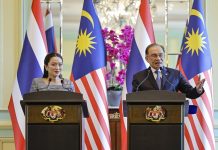BUDGET 2025 WISHLIST
As Malaysia prepares for the release of Budget 2025, WORQ CEO and co-founder Stephanie Ping sees strong signs that the government will implement bold reforms aimed at enhancing the nation’s global economic competitiveness.
Ping acknowledges that while there are challenges facing the country’s business environment and drive long-term economic resilience, the new Budget can provide the incentives to help raise Malaysia’s competitiveness on a global level.
“We need to tackle these competitiveness issues head-on,” Ping stated. “This includes simplifying business regulations, investing in infrastructure that supports both start-ups and multinational corporations (MNCs), and creating ecosystem hubs focused on strategic industries such as semiconductors and Global Business Services (GBS).
“These hubs can attract anchor tenants and foster innovation through a collaborative business environment.”
Ping cited research by Nicholas Bloom, a professor at Stanford University, which found that flexible work arrangements can boost productivity by 13%. She stressed that adopting such arrangements would not only enhance productivity but also promote inclusivity.
“Supporting flexible work environments allows Malaysia to become a more attractive place for highly skilled talent, while also providing opportunities for individuals who may not thrive in traditional work settings,” she added.
The rise of flexible workspaces and remote working presents a unique opportunity for Malaysia. By positioning itself as a hub for highly skilled talent through co-working spaces and alternative work arrangements, Malaysia can compete more effectively with countries offering higher salaries and more significant career growth prospects.
“Malaysia has a distinctive appeal as a vibrant, liveable destination. By embracing flexible work arrangements, we can retain and attract highly skilled professionals who might otherwise choose to work in countries with more competitive remuneration,” she explained.
Ping urged the government to focus on attracting higher value-added industries and streamlining the hiring process for foreign talent, particularly during the initial setup and incubation phases.
In addition, she advocated for the establishment of learning and development (L&D) centres and the promotion of talent mobility through hybrid and remote work arrangements to help retain and upskill local talent. This would prepare the workforce for the demands of high-growth sectors, ensuring that Malaysia remains competitive in the global marketplace.
Highlighting the role of technology in driving economic growth, Ping pointed to WORQ’s own initiatives as an example of how co-working spaces can foster innovation and attract global talent.
“At WORQ, we’ve integrated smart workspace solutions such as high-speed internet, advanced meeting room booking systems, and digital collaboration tools,” she said. Ping also mentioned that the rise of digital nomads offers Malaysia an opportunity to position itself as a destination for professionals seeking flexible workspaces.
“By catering to digital nomads and remote professionals, we can not only fuel economic growth but also promote innovation that can elevate Malaysia’s industries within the global value chain,” she remarked.
The technological integration in co-working spaces, according to Ping, plays a crucial role in increasing operational efficiency and aligning industries for greater global competitiveness.
Ping also stressed the importance of implementing policies that address short- and medium-term economic challenges, in line with the pre-Budget 2025 statement.
She believes that co-working spaces can play a pivotal role in building an ecosystem that supports both local start-ups and foreign MNCs. “Simplifying the process of establishing new businesses and providing them with the necessary infrastructure is key to creating a competitive business environment,” she said.
These initiatives would encourage the creation of new enterprises while supporting existing investments, positioning Malaysia as a world-class investment destination once again. “Ensuring the success of businesses from day one will help restore Malaysia’s reputation as a premier investment destination,” Ping explained.
Another key driver of economic growth highlighted by Ping is the expansion of public-private partnerships (PPPs). WORQ’s successful collaboration with Kumpulan Wang Persaraan (Diperbadankan) (KWAP) serves as an example of how PPPs can accelerate innovation and infrastructure development on a national scale.
“These partnerships are crucial for sustainable long-term growth, as they enable the pooling of resources and expertise,” Ping said.
Looking ahead to Budget 2025, Ping reiterated WORQ’s commitment to collaborating with both the government and industry leaders to spearhead Malaysia’s economic transformation.
“WORQ stands ready to work with the government to capitalise on the opportunities ahead. By leveraging the potential of co-working spaces, fostering innovation, and embracing the future of work, we can ensure that Malaysia becomes a global leader in competitiveness and economic resilience,” she said.















